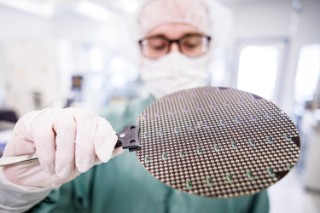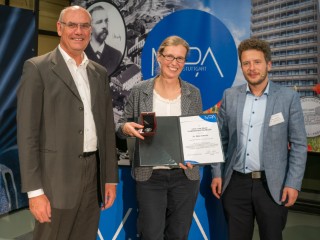Fraunhofer at the Hannover Messe 2025 / 2025
ORCHESTER: Digital Ecosystem Decreases Use of Raw Materials in Production

As part of a Fraunhofer flagship project, researchers are developing a digital ecosystem that collects data along the entire value chain for raw materials — with the goal of ensuring a sustainable and resilient supply. This makes it possible to reuse and recycle materials energy-efficiently and with as little loss as possible. At the Hannover Messe 2025, the research team will be presenting a demonstrator that showcases the many different options offered by this ecosystem.
more info Fraunhofer Institute for Mechanics of Materials IWM
Fraunhofer Institute for Mechanics of Materials IWM







